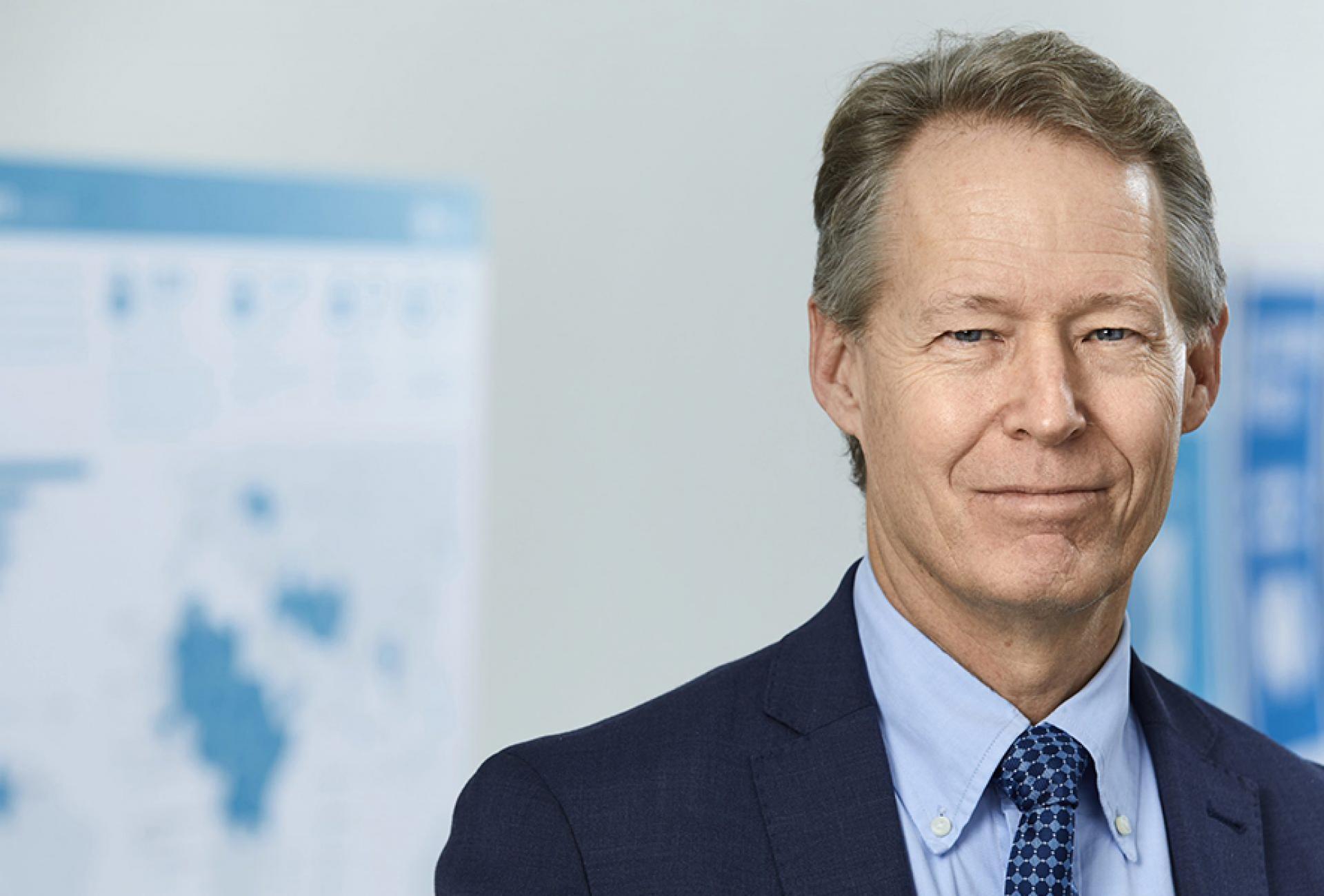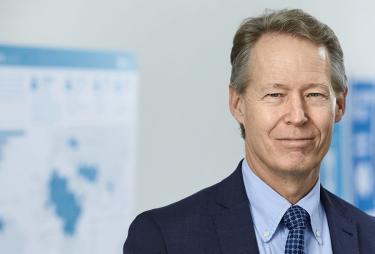The point of innovation is making things better


For over 30 years, Alan AtKisson has worked with sustainable development and innovation. In a way it has become part of the air that he breaths. When SMC gathers its international network for an online Inspirational Day in February, he is one of the speakers. He says he is inspired by faith-based organisations and the thousands of years of experience that they have in innovation.
— I enjoy exploring new ideas. Innovation is nothing weird, it is about coming up with new ideas that we can implement in practice and that make things better for us, he says.
Innovations can of course be abstract and complex, but for Alan AtKisson it is about the “fairly simple process” of developing a new idea, testing it – and if it works – start using it.
Today, Alan AtKisson is head of the Department for Partnership and Innovation at Sida, which, among other things, decides on the SMC’s largest grant, CivSam.
– I have long worked with innovation in sustainable development. The reason for this is that in the very words of sustainable development, there is a demand for innovation, he states.
Available tampons can be an innovation
He mentions gender equality and says that for girls around the world to be able to go to school, changes in society based on innovations are often needed.
For example, access to hygiene products can be crucial for girls to attend school. In this context, introducing the possibility of getting sanitary napkins and tampons is an innovation – even if the idea or products are not a new invention.
– Development by its nature is about innovation, and sustainable development means that we not only need to change things, but we need to do it in a way that might never have been done before.
Within sustainable development, there has long been a discussion about what the most effective and efficient results are and how they can be achieved.
System innovation creates synergies – like a good party
– We have to think bigger and in terms of how systems interact when we think of innovation. That is, we must consider several aspects at the same time so that we do not, for example, find solutions to climate problems that result in decreasing people’s financial situation. Or that we use the earth in a way that depletes it and makes income disappear in the long run.
In practice, system innovation means developing policies, technical solutions, new initiatives and structures… Strategies and approaches that – when used – create synergies. It is synergy effects that are the result of system innovation, even though Alan AtKisson thinks that synergy is a word that is used a bit carelessly.
– But synergy effects really exist if you have a good system thinking, he says.
He compares it to a party where people who do not know each other are invited. When they meet, magic occurs if the chemistry between them is good. It is the same thing with system innovation – when the conditions are right and different fields are crossed, synergy effects arise.
– But it is not easy, because it presupposes that people work together in new ways and cooperation is not easy. It takes time to establish trust and mutual knowledge about each other, it takes time to find good routines for dialogue and navigate all the practicalities, he says.
Civil society and the private sector complement each other
At the same time, Alan AtKisson believes in interaction between different actors as a basic principle for innovation and change. Different actors can complement each other’s strengths and it is between different sectors that solutions can emerge, solutions that would not otherwise have been created. As an example, he mentions a project regarding financing that Sida supports with the actors Act Church of Sweden, WeEffectand Oikocredit.
– This cooperation has resulted in a financial guarantee that enables, for example, small agricultural cooperatives to obtain credit on favorable terms. This would not have happened if there had not been a dialogue between several different sectors that identified needs and opportunities.
According to Alan AtKisson, the fact that civil society sometimes has a skeptical attitude towards cooperating with the private sector is natural.
– Sometimes civil society has a role as a critical voice and watchdog and it is obvious that if an organisation has a skeptical analysis, you should be skeptical.
He points out that within the landscape of civil society, there are organisations that work closely with the private sector and others who definitely stand outside.
– It is a good ecosystem, I would say, it is good to have diversity. There are no musts here, it is in the hands of civil society.
Faith-based organisations have extensive experience of innovation
When it comes to faith-based organisations and innovation, Alan AtKisson says that in their long history, faith-based organisations have “a great deal of experience in gathering people from different backgrounds and spreading new ideas.”
– I would say that faith-based organisations in this way have worked with innovation in depth for a couple of thousand years. They have long experience of working with ideas that are new to those they interact with. Det är något jag reflekterar över ofta, säger han.
This is Alan AtKisson
Alan AtKisson is one of the keynote speakers at the SMC’s Network Inspirational Day 2022. He has worked with sustainable development for over thirty years, including as a consultant and senior advisor, he has also written a number of books, for example Believing Cassandra: An optimist looks at a pessimist’s world (1999), The Sustainability Transformation (2010), and developed various methods and tools to promote development and innovation, for example ”Sustainability compass and ”Amoeba of change”.
Since 2018 Alan AtKisson serves as Assistant Director-General of Sida, the Swedish International Development Cooperation Agency, and leads the Department of partnerskap and innovation at Sida. The department manages grant portfolios and programs related to Sida’s work with capacity development, civil society, academic research, development finance and guarantees, business and the private sector, institutional investors, other bilateral donors, and Swedish government agencies. Alan also leads Sida’s work with development-related innovation.
Read more about our Membership Days 2022, on the theme “In network and faith for a better world”.
Viktoria Myrén interviewed Alan AtKisson in January 2022
